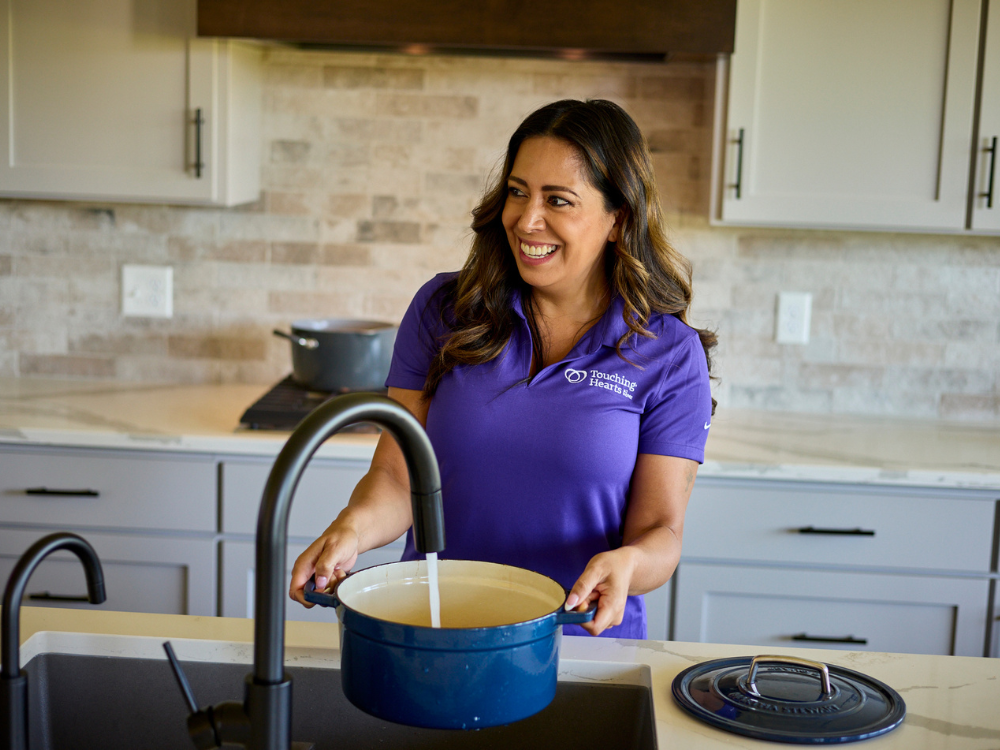Contaminated Food
Did you know the Centers for Disease Control estimates 76 million people each year get sick by eating contaminated food?! Older adults and children are considered most susceptible to foods contaminated by harmful bacteria and viruses which can cause a foodborne illness known as food poisoning. Foodborne illness can occur within 24hours of eating contaminated food, or even days or weeks later. Common symptoms of food poisoning include: diarrhea, nausea, vomiting, abdominal pain and fever. We can contaminate food when we transport, store, prepare or serve it. Food safety techniques must be followed during every stage that we have contact with food.
- Always wash your hands before and after handling food. Scrub your hands for a t least 20 seconds in warm, soapy water to effectively remove dirt and germs.
- Only marinate food in the refrigerator and do not reuse the marinade on cooked food.
- Use a food thermometer to make certain food reaches a safe internal temperature. For example: hamburgers should be cooked to 160 degrees Fahrenheit, steaks and fish to 145 degrees Fahrenheit, and a chicken breast to 165 degrees Fahrenheit.
- Never place cooked food on a plate that previously held raw meat, poultry, seafood, or eggs. Have plenty of clean utensils, plates and cookware on hand when preparing food and cooking.
- Perishables, meaning raw meat, poultry, eggs, cooked food, cut fresh fruits or vegetables, should never be allowed to sit at room temperature for more than two hours before storing them in the refrigerator or freezer. When the temperature is above 90 degrees Fahrenheit, foods should be stored within less than an hour.
- Always clean a food cooler before filling it with ice or an ice pack to keep food cold. A full cooler keeps food colder longer. Keeping drinks in a separate cooler can help to avoid opening and closing a food cooler many times.
- When you travel with a food cooler, keep it in the air-conditioned part of the car rather than in a hot trunk. This includes transporting groceries from the store to your home.
- Remember, even a packed lunch with perishables like meat, cheese or mayonnaise must be kept cold. These rules aren’t just for picnics or traveling. A clean, insulated lunch bag with an ice pack is an easy way to do this.
It was my cat’s vet who recently reminded me of food safety! Cats, like us, can have issues from contaminated food due to all the same food safety rules being broken as what people need to follow. Even when we think we are leaving snacks out for our favorite pets, the same rules for perishables apply.
What’s the exception? Water; drink it cold, tepid, or hot. Keep it in clean containers that you empty often. Dehydration along with food poisoning is common among older adults and can be life threatening.
Protect yourself and those you care for!



